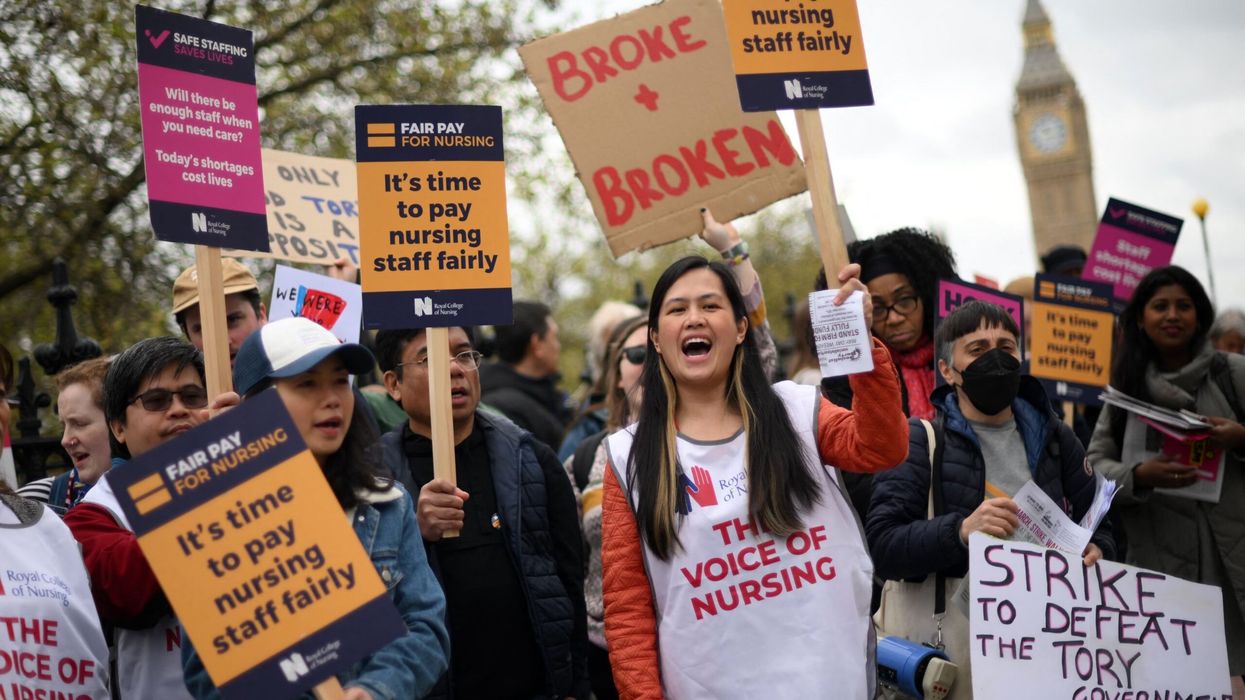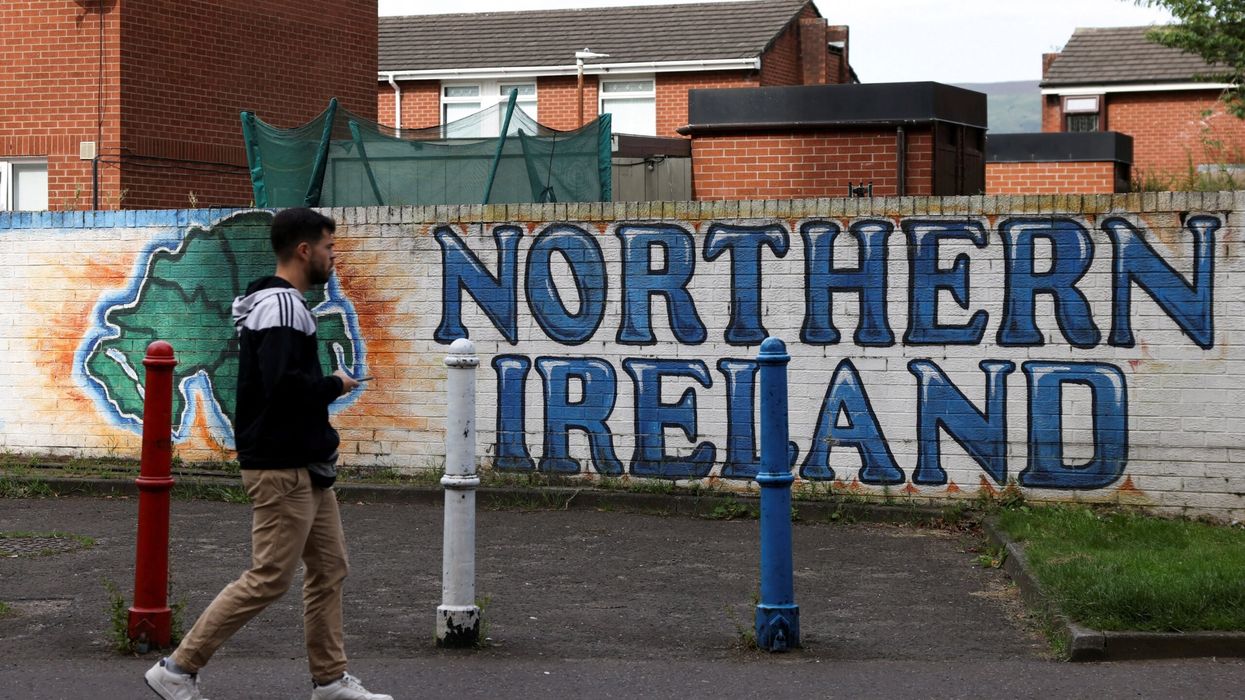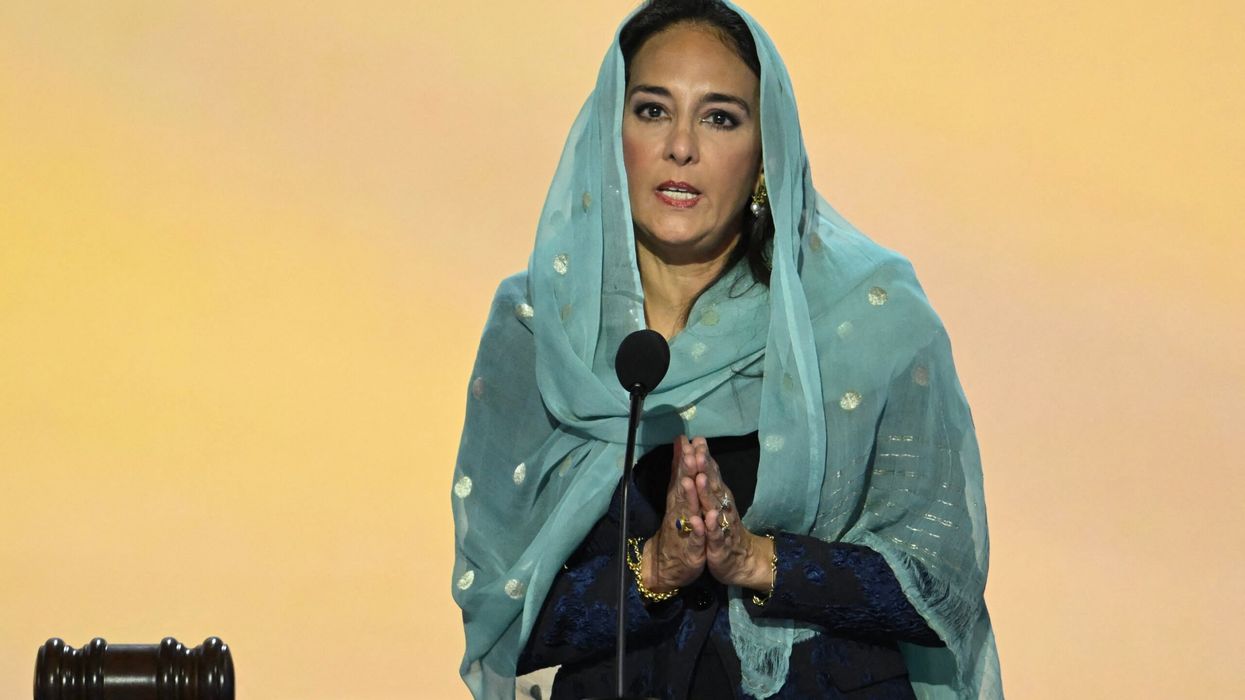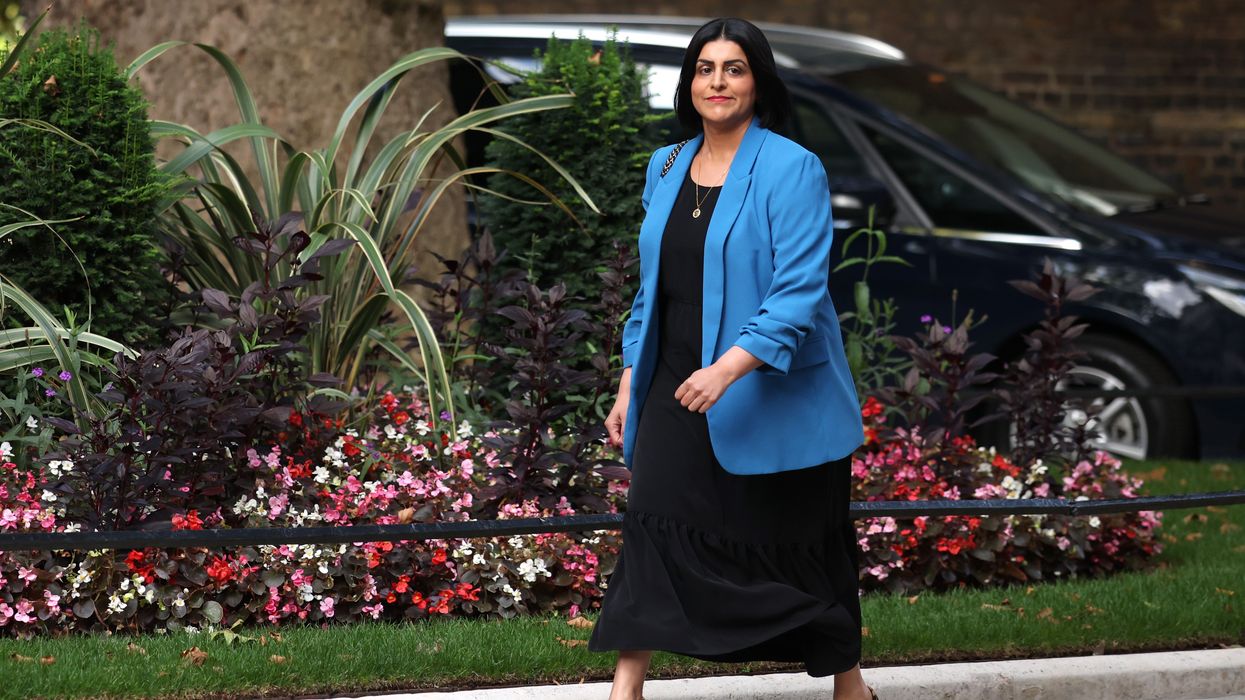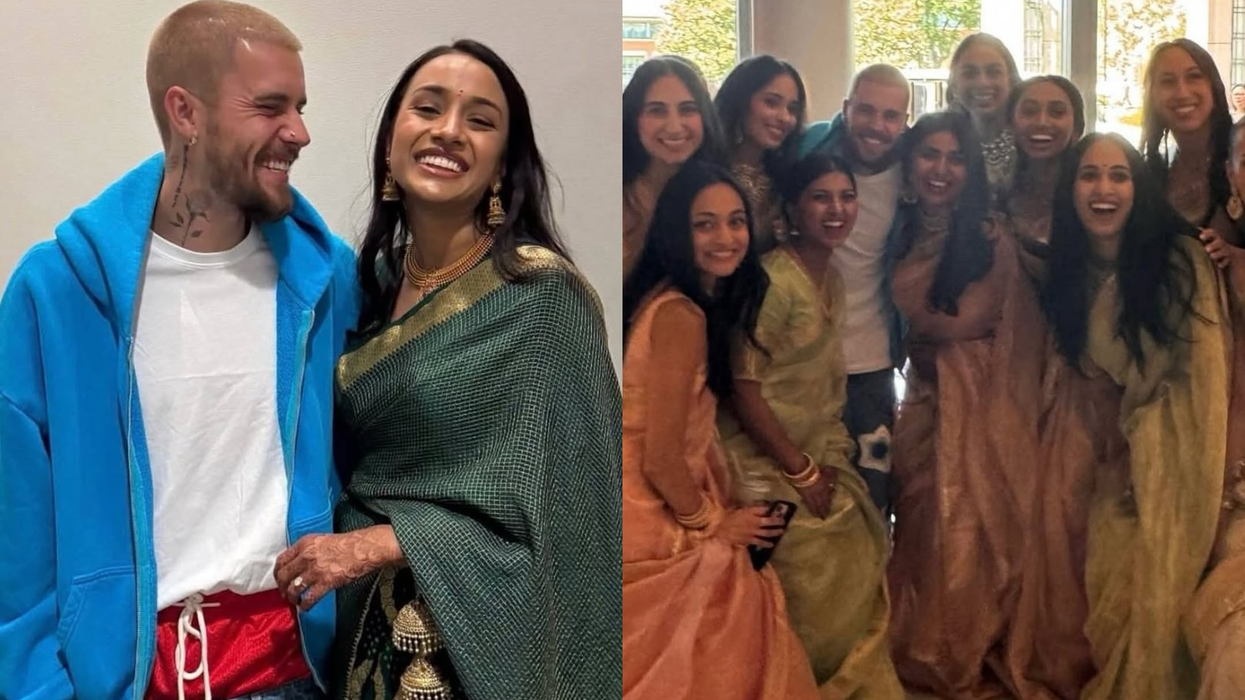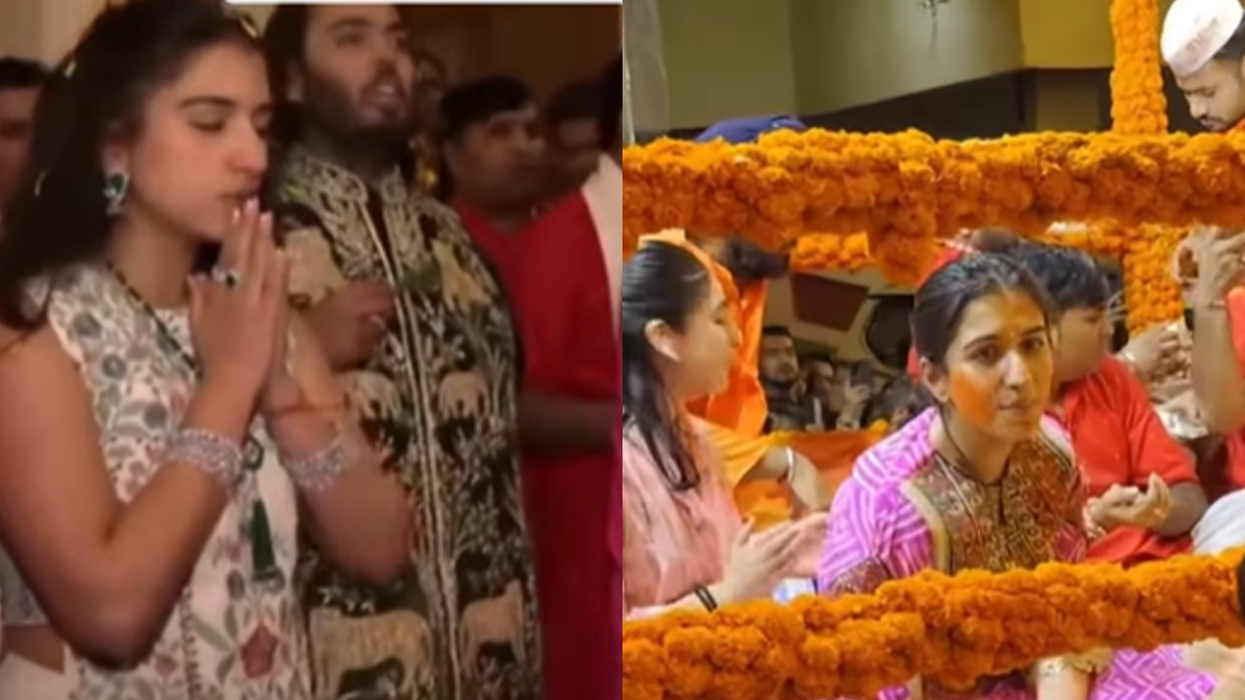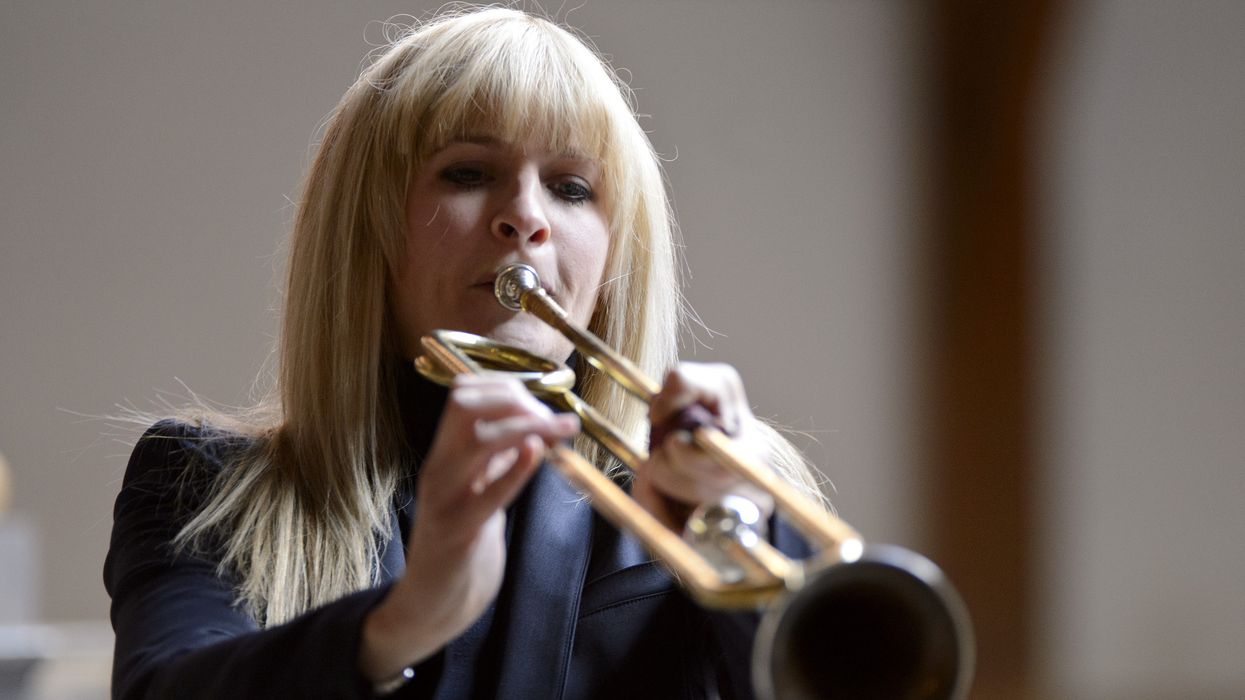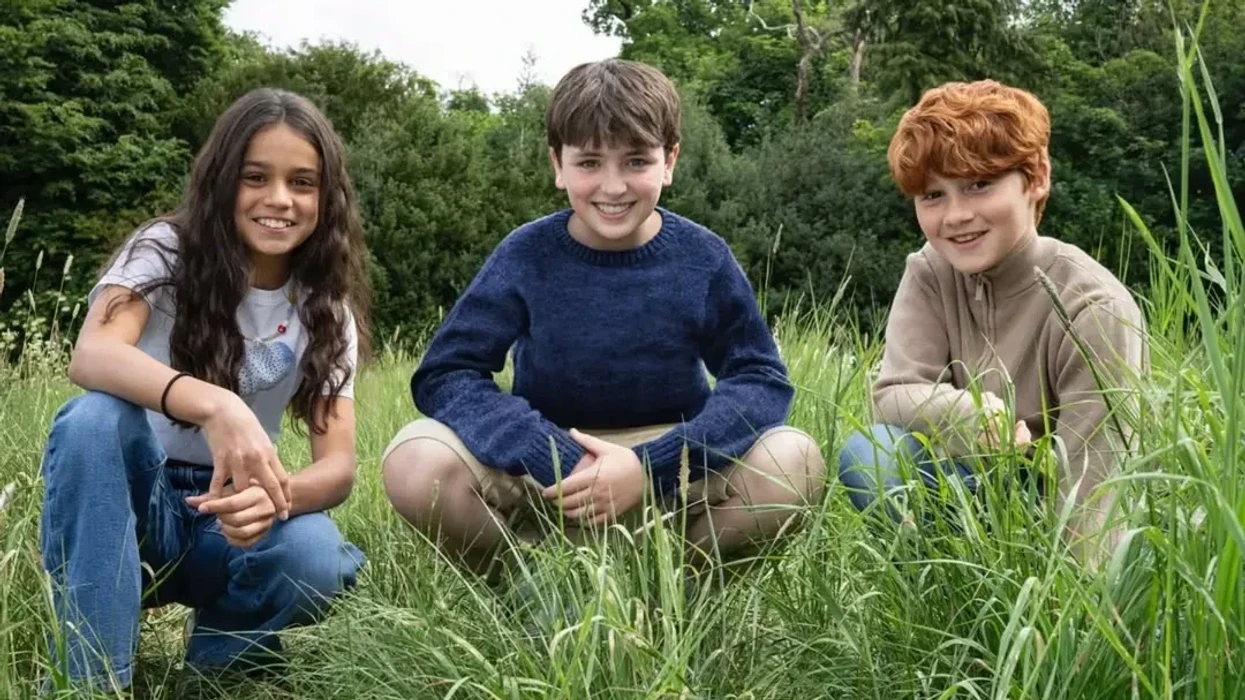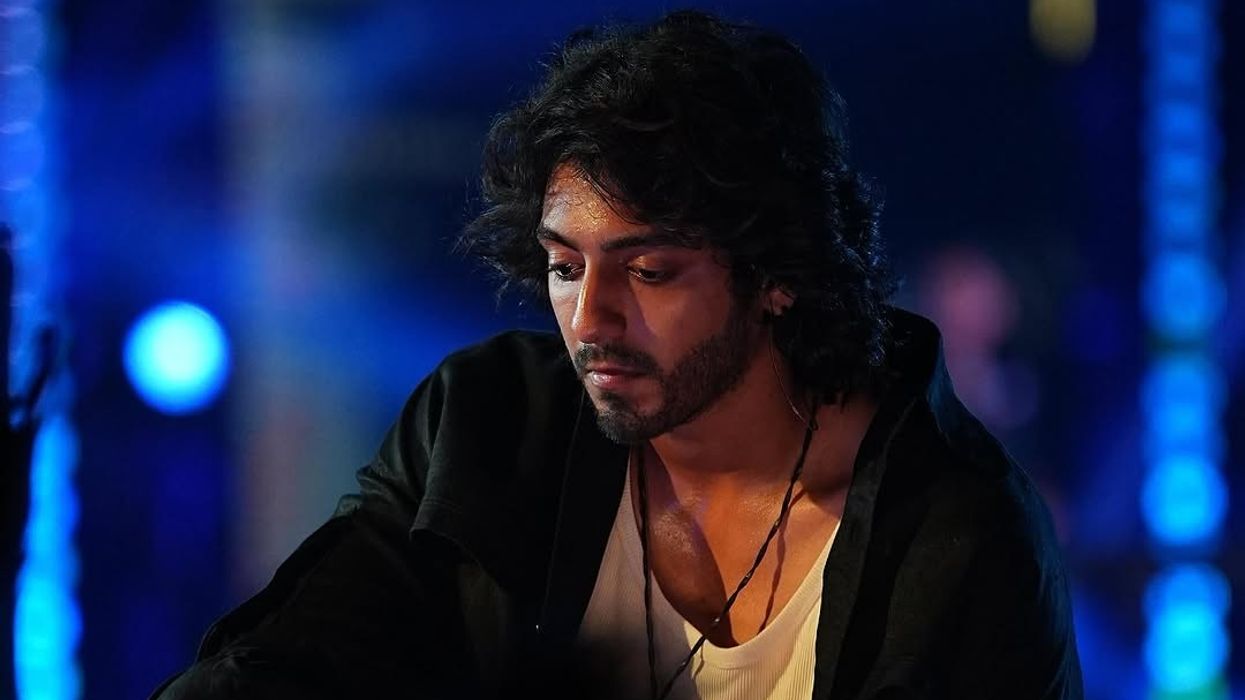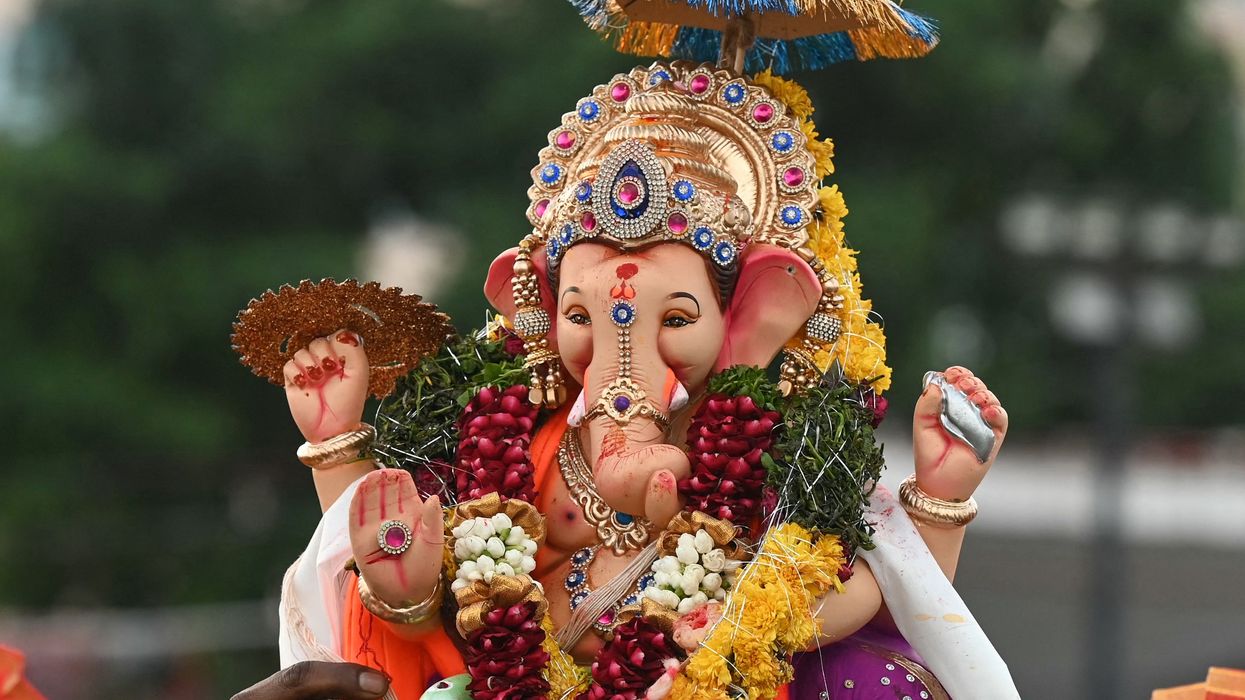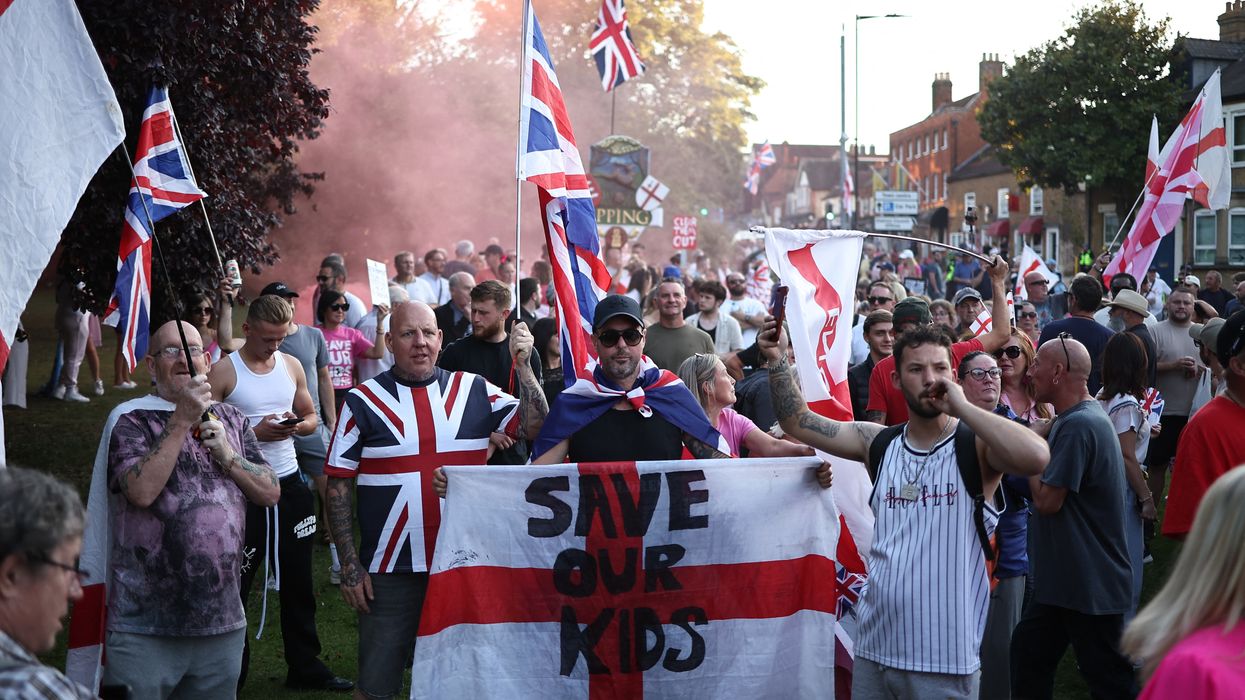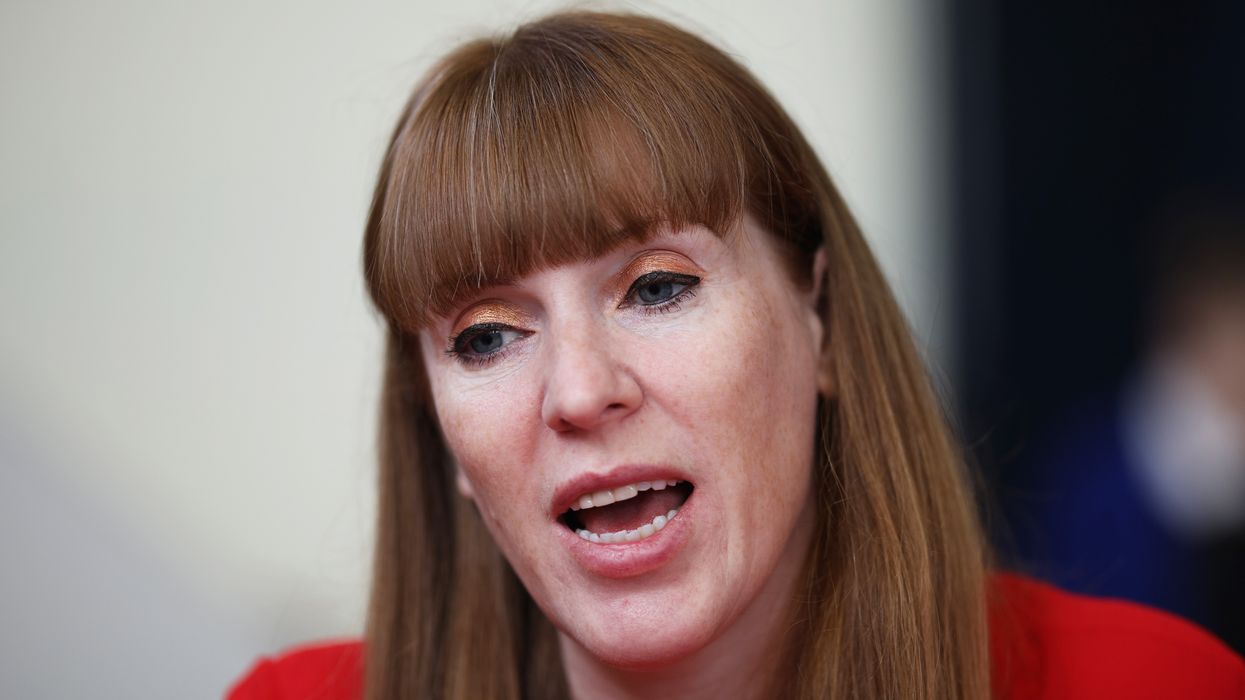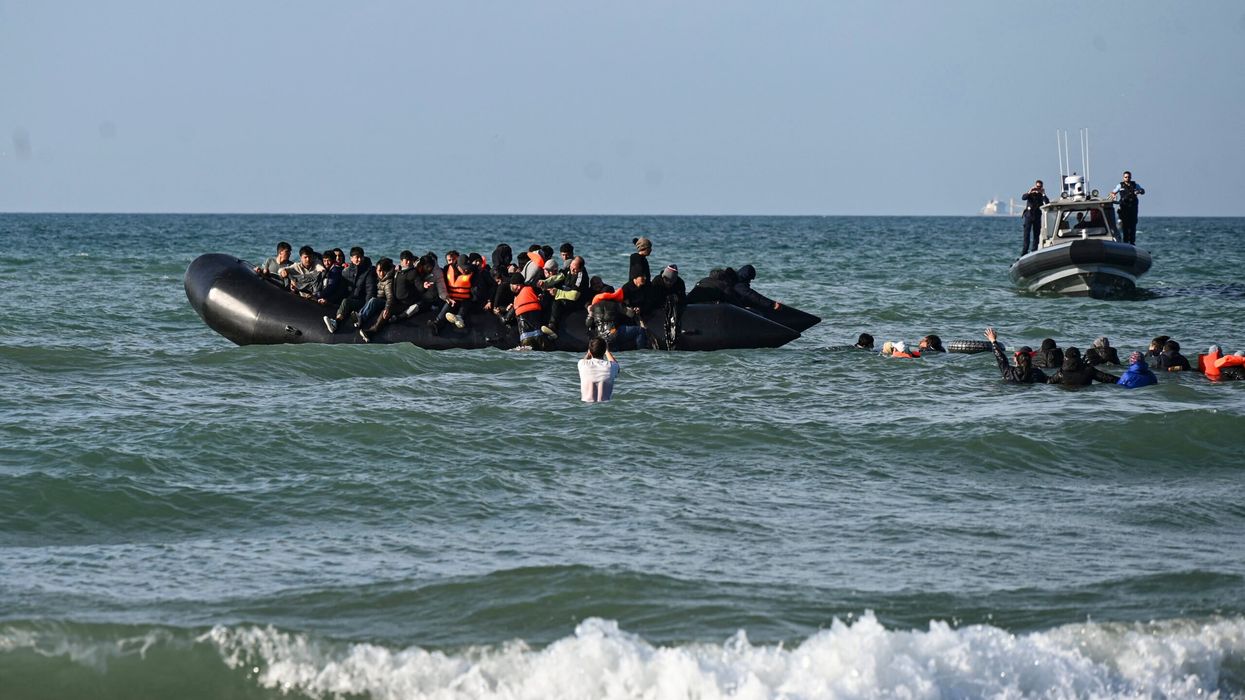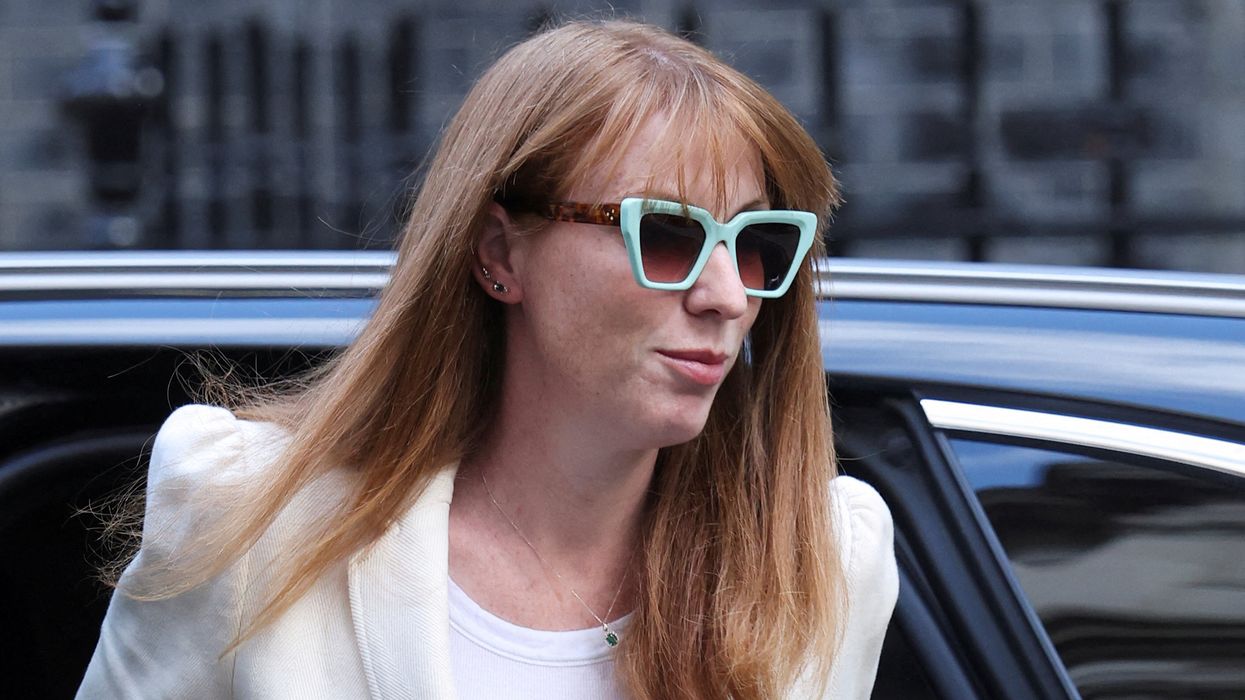by Amit Roy
NEARLY five decades rolled away when Zeenat Aman, one of the legendary heroines of Hindi cinema, recently inaugurated the UK Asian Film Festival in its 21st year when its theme was “revolution”.
Appearing before an enthusiastic audience in the theatre of the May Fair Hotel in London, Zeenat said she was glad the festival planners, including its director Pushpinder Chowdhry, had “felt in some way my career symbolised revolution in the Indian film industry”.
The festival brochure, which has her image on the cover, pointed this out: “No one can ever forget the disenchanted pot-smoking hippie in Hare Rama Hare Krishna; the opportunist who leaves her unemployed lover for a millionaire in Roti, Kapda, Aur Makaan; the girl who falls in love with her mother’s one-time lover in Prem Shastra; and a woman married to a caustic cripple but involved in an extramarital relationship in Dhund. Equally, her conventional films like Chori Mera Kaam, Dostana, Lawaaris and Qurbani are considered to be landmarks in Indian cinema.”
Even the youngest members of the audience, who were not born when Zeenat was at the height of her fame in the 1970s and 1980s, appeared to be familiar with the best loved movies and songs in her career. There was repeated applause as these were mentioned during her captivating question and answer session with the radio presenter Anushka Arora.
Zeenat spoke of songs that remain as popular as ever, among them Dum Maro Dum from Hare Rama Hare Krishna in 1971, when Asha Bhosle was the playback singer.
“I had the good fortune of having RD Burman, who was an iconic music director, and Ashaji sang a lot of my songs – they created magic,” Zeenat said.
She was picked for the role of Jasbir (Janice) in Hare Rama Hare Krishna by Dev Anand after she had won the Miss Asia Pacific beauty contest in Manila in 1970 – “that opened many doors”.
Zeenat, born in 1951 in Bombay (now Mumbai) to a Muslim father and Hindu mother – they separated when she was two – was educated at St Joseph’s Convent, a girls’ boarding school in Panchgani, a hill station in Maharashtra. This explains why her English is fluent and has echoes of Enid Blyton with its references to “midnight feasts” and “tuck”. She was a trifle rebellious but “the nuns made me head girl and I straightened out”.
She acknowledged that initially “I was not very familiar with the language I was working in, I am sorry to say. I was a convent girl. Didn’t speak Hindi too clearly. Dev Anand took my first screen test in English, but his cameraman approved so I was signed.”
Dev Anand wrote a number of films for her, including Heera Panna (1973), and Ishq Ishq Ishq (1974). Then “other producers signed me up for films like Warrant (1974), Darling Darling (1977) and Nasir Hussain in Yaadon Ki Baaraat (1973).”
In all she did some 80 films. “And then in the blink of an eye 15 years had gone by.”
She gave it all up to look after her two sons. She had been long been a single parent because her sons “lost their father about 20 years ago”.
“I feel fortunate as an actor, especially for commercial Hindi cinema where music is such an integral part of the things that you do, that I had the songs that I did whether it was Dum Maro Dum or Chura Liya (from Yaadon Ki Baaraat) or Nazia Hassan’s Aap Jaisa Koi (from Qurbani in 1980). There was some memorable music which brings back a wave of nostalgia.”
Along with Dev Anand, she worked with many of Hindi cinemas greatest actors and directors.
In 1973 she was cast in Yaadon Ki Baaraat after she was spotted by Nasir Hussain when she was staying at a quaint hotel in Mahabaleshwar. “I was walking down with some coconut water and Nasir Hussain said, ‘Who is this very fresh-faced girl?’”
“So, it’s all about the coconut water?” interjected Anushka. “No, it was about the fresh-faced girl!” responded Zeenat.
Of Rajesh Khanna, who starred opposite her in Ajanabee in 1974, she said: “He was a phenomenon and we were all completely awestruck. Women killed themselves over the fact he got married – literally. He was fond of writing his lines on cue cards, so they were all over the place. He looked up, down, looked here, looked there.”
She knew Amitabh Bachchan before he became a superstar: “Gangly, tall, unsure of where his career was going – he was dating my best girlfriend. So, we went out a lot together.”
He didn’t change with fame and remained the same person: “Funny, naughty, friendly.”
They acted together in The Great Gambler (1979), part of which was shot in Venice. There was laughter as Zeenat revealed the film’s erotic consequences: “I meet a lot of people who saw the film and went for their honeymoon to Venice. That song contributed to an explosion in the population.”
An angry Feroz Khan “said a few things on the phone he shouldn’t have said” when she turned down a secondary role in one of his films. “But he came back with a leading part in the next film. No regrets I said no because I did Qurbani (1980).”
She had acted with Raj Kapoor in films, but when he directed Satyam Shivam Sundaram in 1978, “he was so uncertain about casting me because I was expected by the audiences in a very westernised genre. So for him to be casting me as a tribal girl with a burnt face was a challenge.”
Shatrughan Sinha was invariably late on set, but made up for lost time because “he had an amazing photographic memory” and “knew all his lines”.
There were no trolls in her day, but she learnt to live with magazines such as Cineblitz and Stardust who “wanted to put me on their cover but then write a lot of scandal”.
“It was a different time,” remembered Zeenat, whose lure remains undimmed. “The digital world did not exist. Movie stars were movie stars at the time. Films went on to do silver jubilees, golden jubilees, these wonderful grand premieres and people came out to see their favourite stars.
“The stars were not on every TV channel, easily seen and available. There was some aura about people who worked in the business. That was real stardom.”
